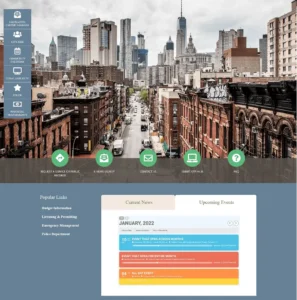[ad_1]
Essential Record Management Practices for a Secure and Organized Business
Record management is a critical aspect of any business or organization, especially in the public sector. Effective record management practices ensure that accurate and reliable information is readily available when needed, while also maintaining the security and privacy of sensitive data. Furthermore, proper record management practices can help mitigate legal issues and improve public engagement. In this article, we will discuss essential record management practices for a secure and organized business, and how SnapSite can help.
1. Create a record management policy
The first step in effective record management is to create a record management policy. This policy should outline the scope and principles of record management, define roles and responsibilities, establish record retention and disposition schedules, and provide guidance on the use of technology for record management.
SnapSite provides a cloud-based record management solution that allows users to create, manage, and store records securely and efficiently. SnapSite also offers customizable retention and disposition schedules, ensuring that records are retained for the required period and destroyed securely when no longer needed.
2. Establish a records inventory and classification system
A records inventory is a comprehensive list of all the records created, used, and maintained by an organization. This inventory should include information about the type of record, its format, location, and its retention period. Once an inventory has been created, a classification system can be established to organize records based on their content and function.
SnapSite allows users to create a hierarchy of categories and subcategories, making it easy to organize records based on their content and function. Users can also search for records using customizable filters, making it easy to locate specific records when needed.
3. Implement secure record storage and access controls
Effective record management requires secure storage and access controls to ensure the confidentiality, integrity, and availability of records. Access controls should be implemented at different levels, including physical security, network security, and user authentication.
SnapSite provides advanced security features, such as encrypted storage, two-factor authentication, and granular access controls. This ensures that records are secure and only accessible to authorized users.
4. Train employees on record management practices
Record management is a shared responsibility, and all employees should be trained on record management practices. This includes understanding the record management policy, proper record handling, and disposal procedures, as well as the use of technology for record management.
SnapSite provides a user-friendly interface, making it easy for employees to use and adopt. SnapSite also offers training and support to ensure that users are comfortable and knowledgeable in using the system.
Conclusion
Effective record management practices are essential for a secure and organized business. SnapSite offers a comprehensive record management solution that simplifies and streamlines record management practices. Whether for city government operations, legal issues for municipalities, or public engagement, SnapSite provides an easy-to-use, secure, and efficient way to manage records. Visit https://snapsite.us to learn more.
[ad_2]
Source link







